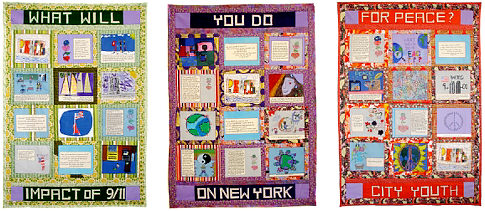Where were you on September 11, 2001? What were you feeling as the events of that day unfolded?
I remember exactly where I was. I was working on the computer in my home office, getting ready for a morning meeting in downtown Cleveland. The phone rang. It was one of my clients. She quickly said, “Turn on your TV!” When I asked her why, she repeated, “Just go and turn on your TV!!” I ran downstairs, and found national news anchor Peter Jennings reporting live on ABC-TV. He was showing video footage of a jet hitting the World Trade Center in New York City.
My mind was trying to process what was happening. I stood there shocked and dazed. I realized my client was still on the office line upstairs. When I returned to the call, she provided a few more details. I didn’t know until much later that one of the “hostage” airplanes had flown over Cleveland Hopkins International Airport. I live several miles from the airport.
While the day was filled with disturbing images and reports, for me, the evening was surrealistic. Living so close to the airport, I didn’t hear the usual airplanes overhead that night. It was completely silent.
This year, the citizens of our country and the world remembered that tragic event that happened 15 years ago and the thousands of lives that were lost and thousands more who lost a spouse, partner, parent, child, sibling, relative, friend, neighbor, or co-worker.
9/11 changed the way we travel, how we perceive or judge others, how we communicate, how we measure security, and how we mourned as a nation.
The greatest lesson 9/11 taught us is the power – and the necessity – of empathy.
From my perspective, empathy is sorely lacking in society today. The Merriam-Webster Dictionary defines empathy as “the feeling that you understand and share another person’s experiences and emotions: the ability to share someone else’s feelings.” Simply put, it’s trying to put yourself in someone else’s shoes. Sympathy, on the other hand, is defined as “a feeling that you care about and are sorry about someone else’s trouble, grief, misfortune, etc.; a sympathetic feeling is a feeling of support for something.” Both require some level of compassion. To me, empathy requires a deeper level of compassion than sympathy. It requires stretching your capacity to genuinely “feel” for another person. Empathy also requires setting aside your ego and your own wants, desires, and needs and focusing on another person’s wants, desires, and needs. It also demands that you listen from your heart rather than your head.
The world today is a far different place than it was 15 years ago. Your skill set has expanded to include a greater consideration for cultural differences, diversity, and inclusion. Workplace environments and laws governing the country, states and cities have broadened our perspectives.
9/11 is a time of remembrance. It is also a time to reflect and ask yourself how you’re doing. How do you demonstrate empathy in your workplace? In your personal life? In your community? How open-minded are you when you travel to other countries or when you welcome new citizens to ours? Where can you incorporate peace, love, and unity in your life?

